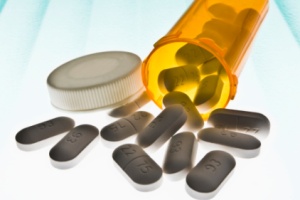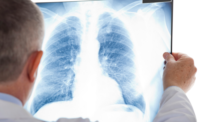 The number of prescription painkiller overdose deaths increased fivefold among women between 1999 and 2010, according to a Vital Signs report by the Centers for Disease Control and Prevention (CDC). While men are more likely to die of a prescription painkiller overdose, since 1999 the percentage increase in deaths was greater among women (400 percent in women compared to 265 percent in men). Prescription painkiller overdoses killed nearly 48,000 women between 1999 and 2010.
The number of prescription painkiller overdose deaths increased fivefold among women between 1999 and 2010, according to a Vital Signs report by the Centers for Disease Control and Prevention (CDC). While men are more likely to die of a prescription painkiller overdose, since 1999 the percentage increase in deaths was greater among women (400 percent in women compared to 265 percent in men). Prescription painkiller overdoses killed nearly 48,000 women between 1999 and 2010.
Stopping the epidemic
“Prescription painkiller deaths have skyrocketed in women (6,600 in 2010), four times as many as died from cocaine and heroin combined,” said CDC Director Tom Frieden, M.D., M.P.H. “Stopping this epidemic in women – and men – is everyone’s business. Doctors need to be cautious about prescribing and patients about using these drugs.”
The study includes emergency department visits and deaths related to drug misuse/abuse and overdose, as well as analyses specific to prescription painkillers. The key findings include:
-
About 42 women die every day from a drug overdose.
- Since 2007, more women have died from drug overdoses than from motor vehicle crashes.
- Drug overdose suicide deaths accounted for 34 percent of all suicides among women compared with 8 percent among men in 2010.
- More than 940,000 women were seen in emergency departments for drug misuse or abuse in 2010.
-
Prescription painkillers have been a major contributor to increases in drug overdose deaths among women.
- More than 6,600 women, or 18 women every day, died from a prescription painkiller overdose in 2010.
- There were four times more deaths among women from prescription painkiller overdose than for cocaine and heroin deaths combined in 2010.
- In 2010, there were more than 200,000 emergency department visits for opioid misuse or abuse among women; about one every three minutes.
Why women?
Previous research has shown that women are more likely to have chronic pain, be prescribed prescription painkillers, be given higher doses, and use them for longer time periods than men. Studies have also shown that women may become dependent on prescription painkillers more quickly than men and may be more likely than men to engage in “doctor shopping” (obtaining prescriptions from multiple prescribers).
“The prescription painkiller problem affects women in different ways than men and all health care providers treating women should be aware of this,” said Linda C. Degutis, Dr.P.H., M.S.N., director of CDC′s National Center for Injury Prevention and Control. “Health care providers can help improve the way painkillers are prescribed while making sure women have access to safe and effective pain treatment.”
Steps that health care providers can take:
- Following guidelines for responsible opioid prescribing, including screening and monitoring for substance abuse and mental health problems.
- Using their states’ prescription drug monitoring program; this can help identify patients who may be improperly using opioids and other drugs.
- Discussing pain treatment options, including ones that do not involve prescription drugs.
- Discussing the risks and benefits of taking prescription painkillers including when painkillers are taken for chronic conditions, and especially during pregnancy.
- Avoiding prescribing combinations of prescription painkillers and benzodiazepines unless there is a specific medical indication.
Steps that women can take:
- Using prescription drugs only as directed by a health care provider.
- Discussing all medications they are taking with their health care provider, including over-the-counter medications (such as for allergies).
- Discussing pregnancy plans with their health care provider before taking prescription painkillers.
- Disposing of medications properly, as soon as the course of treatment is done. Not keeping prescription medications around “just in case.”
- Helping prevent misuse and abuse by not selling or sharing prescription drugs. Never using another person’s prescription drugs.
- Getting help for substance abuse problems (1-800-662-HELP) and calling Poison Help (1-800-222-1222) with questions about medicines.


